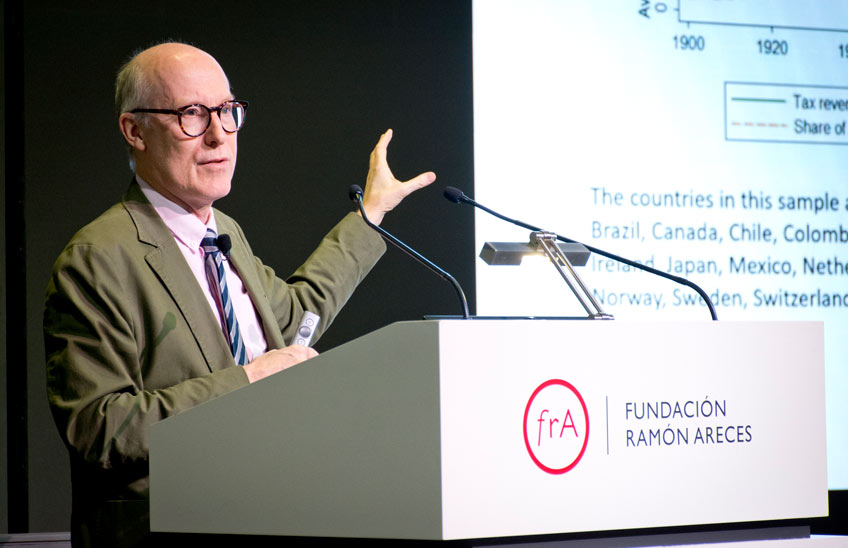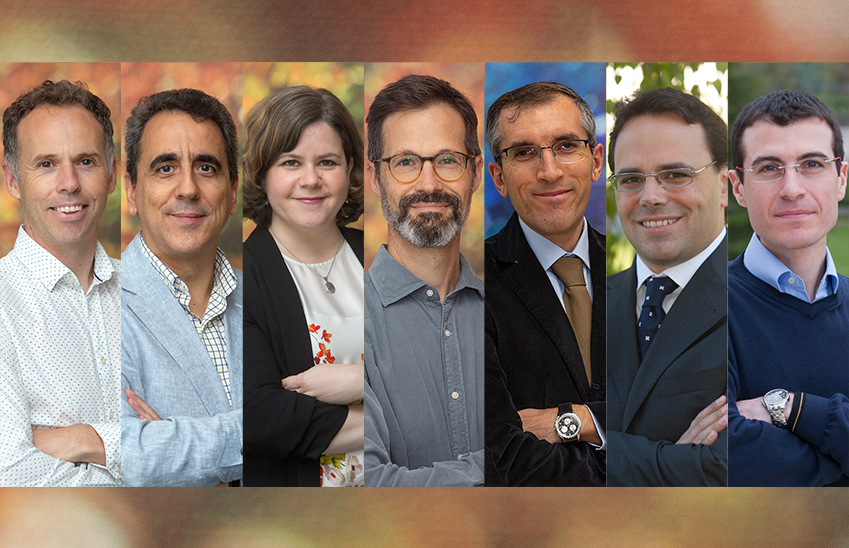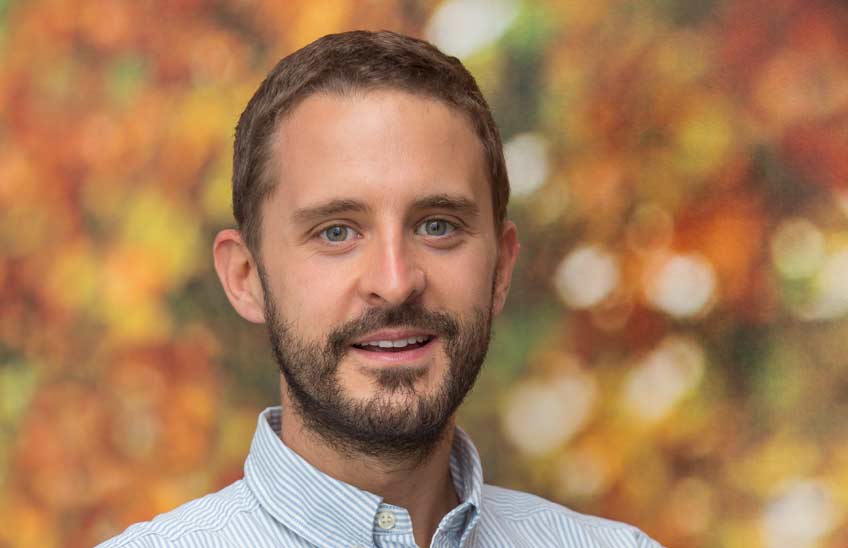The Institute for Culture and Society starts the 2023-2024 academic year with a team of 82 people from 20 disciplines and 22 nationalities and 172 international collaborators.
At the ICS's meeting , Jaime García del Barrio, highlighted the increase in public and private funding for the development of projects of research
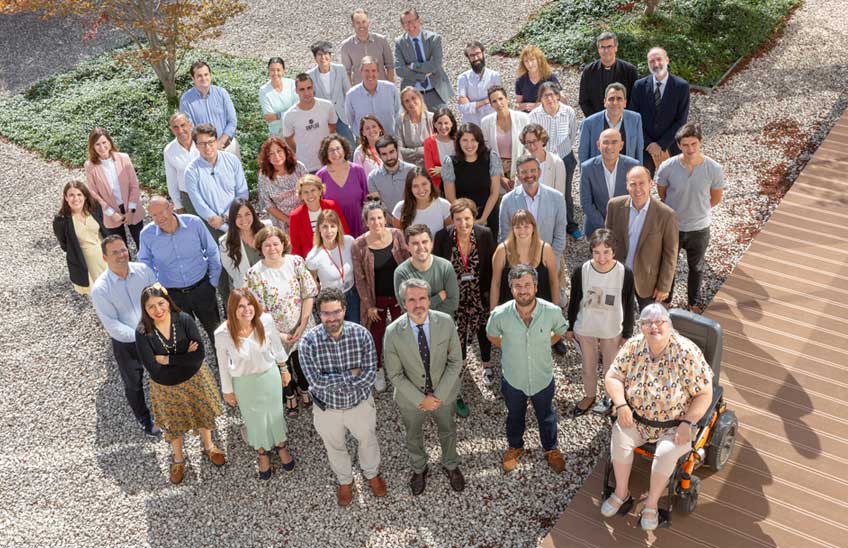
FotoManuel Castells<br>/Foto de grupo del equipo del ICS en el curso 2023-2024
05 | 10 | 2023
The Institute for Culture and Society (ICS) has celebrated its meeting at the beginning of the academic year in which Jaime García del Barrio, director of the center, has reviewed some new developments for the academic year 2023-2024 and some milestones of the previous year 2022-2023.
First of all, he thanked the ICS team for its efforts to carry out research based on scientific quality, multidisciplinarity and international outreach. During the last academic year, 32 research projects have been developed with a budget amounting to 77.35 million euros. Of these, eight projects belong to the internal call, three are funded by foundations, eleven by the Government of Spain, nine European and one with the support of the Government of Navarra. The director has highlighted that, of the proposals for competitive funding requested, a success rate of 22.14% was obtained.
It has also celebrated the continuous improvement of research production, which is reflected in the percentage of papers collected in journals with high scientific impact. Eighty percent of the articles and reviews were collected in first and second quartile journals. A total of 1,423 journal publications, 248 books and 568 book chapters were published.
New initiatives of research
García del Barrio mentioned some non-competitive initiatives launched in the 2022-2023 academic year, such as the Chair IDEA of New Longevities, the Civic Humanism Center for programs of study on the character and ethics of the professions or the knowledge dissemination scientific platform Infinity.
On the other hand, he highlighted the work carried out in the framework of the challenge ICS 22-23 "Young people, relationships and psychological well-being", framed in the Strategy 2025 of the University of Navarra 'Health and Well-being'. The previous course ICS researchers worked with international experts, three of them came to campus with long stays and six others with short stays. During this course, the fruits of the research carried out will be collected in the form of scientific articles, guides and books, and a final congress will be held in June 2024. García del Barrio also recalled the upcoming challenge ICS 24-25 "Orientalism and Occidentalism: Crossed Gazes".
He then pointed out some social impact initiatives for the 2022-2023 academic year: the partnership with institutions such as the World Health Organization or the Observatory of the Social Reality of Navarra to promote improvements in the population; and the dialogue with social agents for the transfer of knowledge, such as with the laboratory permanent social innovation of Navarra, the Gondra-Barandiarán Foundation or the Conservatory of Music.
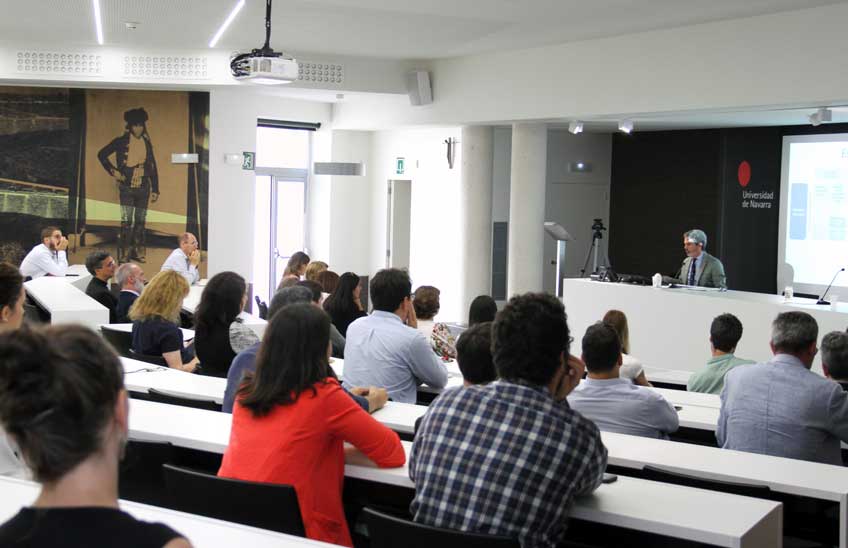
Prospects for work
Looking ahead to the 23-24 academic year, the director of the ICS has stated that it has a team of work made up of 82 people and 172 collaborators from 20 scientific disciplines and 22 nationalities. In addition, he welcomed the new incorporations: Ion Egúzkiza, as new General Manager; Nieves Acedo, senior researcher to foster ties with the University of Navarra Museum, three postdoctoral researchers, Carmen Callizo, Cecilia Serrano and Itzel de Haro; and Cristina Béjar, who will carry out a doctorate thanks to the implementation of the Research Fellowship program for the training of Ecuadorian doctors at research in palliative care.
In addition, it has announced that Mirko Abbritti will be the new researcher principal investigator of the Navarra Center for International Development, following the retirement of Luis Ravina, and María Arantzamendi has been appointed co-principal investigator of the ATLANTES Global Observatory of Palliative Care.
Finally, García del Barrio recalled some challenges to continue working on: strengthening ties with the University's Schools through secondments; strengthening the research and the endowment of the line on family and Latin America, as well as institutional relations with the continent; developing a system of assessment of social impact; and creating an 'external advisory board' and promoting a network of research with former ICS researchers.

